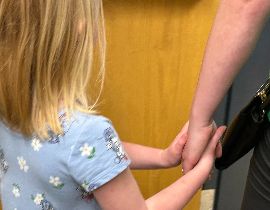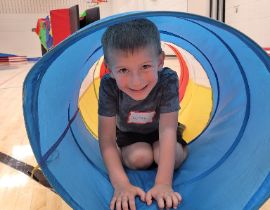- Shakopee Public Schools
- Health & Family Partnership
Health & Family Partnership

Family Support
-
- Notify the school of the studentʼs medical diagnosis. This can be completed during online registration or on paper using the Annual Health Update form and providing medical documentation.
- Provide written medical documentation, instructions and medications as directed by a physician, using the appropriate action plan. Commonly used action plans for severe asthma, allergies, seizures or diabetes are available on the Shakopee Public Schools website. Parents/Guardians may be asked to contact the physician for recommendations for accommodation during the school day.
- Work with the school team to develop a plan for reasonable accommodations for the studentʼs needs during the school day including in the classroom, cafeteria, playground and field trips.
- Create an alert on the food service account. Parents/Guardians are also encouraged to contact food services in their students' building to discuss menu items or review the ingredients of food served at school.
- Coordinate a plan for before and after school activities and for transportation to and from school.
- Introduce yourself and student to the bus driver and alert him/her to the studentʼs medical needs.
- Provide properly labeled emergency medications and replace medications upon expiration.
- Provide safe alternatives for snacks and birthday treats.
- Review the school lunch menu for possible unsafe foods.
- Educate your student in the self-management of their health including:
- Teaching them about their condition by explaining it to them in a language they understand.
- Working with your child to come up with a health summary that they can memorize and give others when they need to speak up for their needs.
- Teaching them how to appropriately share information about their condition with pertinent school staff.
- Sharing when they should communicate with the school nurse if they are not feeling well to avoid potential emergencies.
- Obtain a medical alert bracelet for the student to wear, if applicable.
- Review upcoming projects and field trips and communicate any concerns to the teacher.

Student Support
-
- Understand their unique health needs at an age-appropriate level.
- Be proactive in the care and management of their health based on developmental level and understanding.
- When age-appropriate, know how to use/administer their emergency medication.
- Wear an appropriate Medic-Alert bracelet, or similar item to communicate with adults or emergency responders.
- Share (or have the teacher or nurse share) information regarding their unique health needs with classmates when it may help them remain safe at school.
- Minimize risk in the lunchroom by sitting at the allergen-free table if it is available.
- Understand what may trigger an allergic reaction, if applicable.
- Notify an adult immediately if they eat something that may contain a food to which they are allergic.
- Do not trade food with others or eat anything with unknown ingredients or known to contain an allergen that may cause a reaction.

